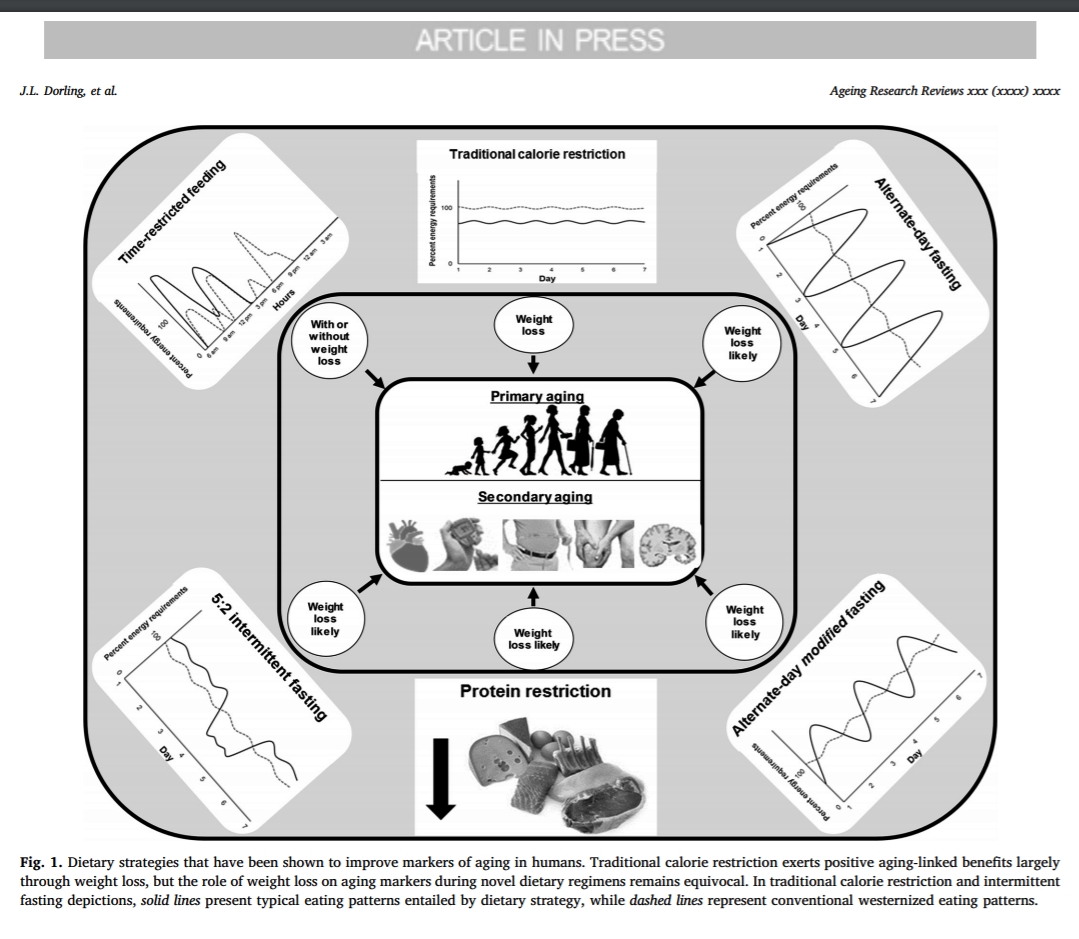Calorie restriction for enhanced longevity: The role of novel dietary strategies in the present obesogenic environment
James L.Dorling Ageing Research Reviews Volume 64, December 2020, 101038
Highlights
• Traditional calorie restriction robustly improves markers of aging in humans.
• Novel dietary strategies may be substitutes for calorie restriction.
• Intermittent fasting and protein restriction have gained most scientific attention.
• In humans, escalating work suggests these strategies may improve markers of aging.
• Benefits of novel strategies compared to calorie restriction are unclear in humans.
Calorie restriction (CR) is a potent modulator of longevity in multiple species. A growing body of evidence shows that sustained periods of CR without malnutrition improves risk factors involved in the pathophysiology of type 2 diabetes, cardiovascular diseases, cancer, and neurological disorders in humans. Innovative dietary strategies such as intermittent fasting and protein restriction have recently emerged as alternative approaches that improve markers of aging.
Some of these newer strategies might provide benefits for healthy aging with little to no CR and therefore, compared to traditional CR, may be easier to follow. Further to providing an update of CR studies in humans, the present narrative review appraises the influence of these contemporary dietary strategies on mechanisms posited to drive CR-induced longevity in humans, including those involving energy metabolism, oxidative damage, inflammation, glucose homeostasis, and functional changes in the neuroendocrine systems. The review also discusses the utilization of these diets for populations in the current obesogenic environment, and comments on whether current research can inform an optimal diet that attenuates aging, can be easily followed, and promises to improve longevity in humans.














